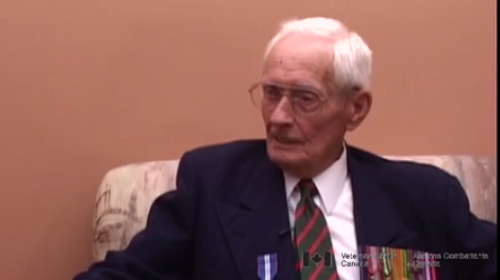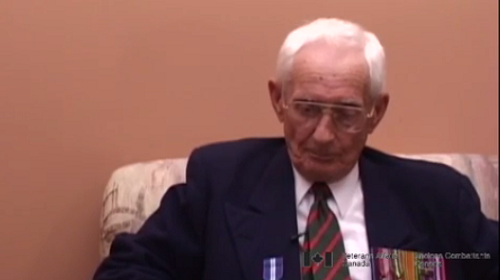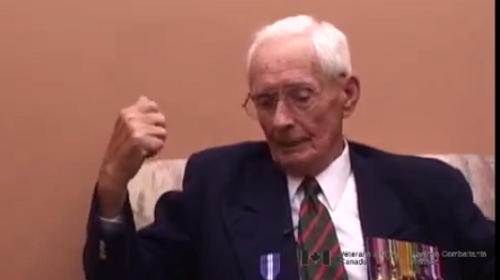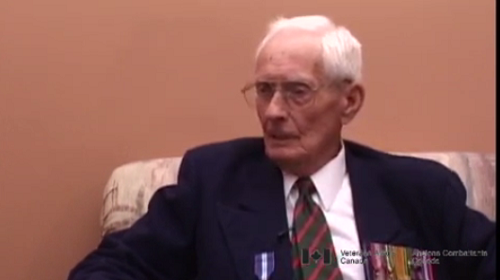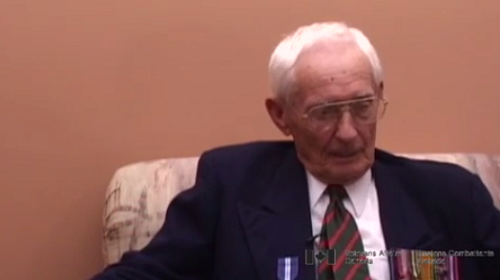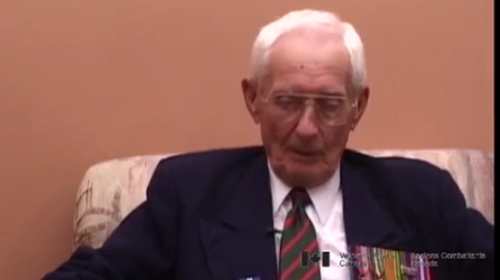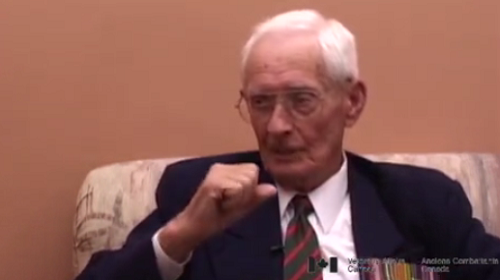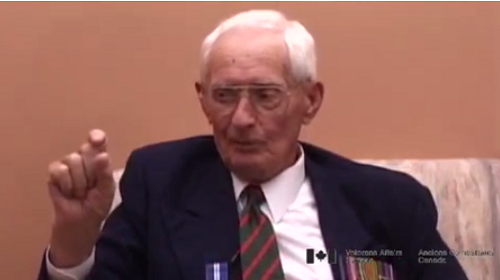Selection For Japan
Heroes Remember
Selection For Japan
Transcript
They stretched a wire out up maybe this high and
they would make you run and jump over this wire.
And if you could run to that wire and jump over it
and then they'd call out to you and tell you to keep on going.
So they'd make you go a little further and then they
they would let us all gather there.
And that's where they took us from there to the boat to go to Japan.
So they marched us down after night.
Put us on the boat after it was dark
cause all black out there by this time. Yeah.
So they had a narrow opening in the deck
and they had a wall about this high, right along like this.
So as you were coming on one ahead of the other
and this was black hole in the floor in the deck, they would,
the Japs who spoke good English on either side
and he'd grab you by the arm and say,
“Be careful. Be careful. Step, step ahead then.”
So when you stepped ahead there was no ladder.
So you went head-first through that hole
and then the next guy was the same thing.
You just stepped out into mid-air.
So you went down in the bottom of the boat to a deck down below.
There was nothing down there.
Just a place, and there weren't place for us all to lie down.
So if someone got up to go, they had a urinal along there,
to go there, if you want to go to the bathroom.
When you come back someone else had laid in your spot.
You had to stay up till someone else went
and then you would take their place.
So there wasn't laying, there wasn't space for us all to lie down.
But they had segregated us out cause they didn't want,
that was one reason to go to Japan
because they couldn't allow diseases to get out of hand in Japan,
cause it would be bad for their army and all the services.
So that way you stood a better chance going to Japan, my way of thinking.
A lot of the guys would be praying,
while the Americans sank the boat that went a month or so before.
They'll torpedoed this boat and we'll all drown
or be killed with the explosion us down in the hole.
So some would be praying for the Americans to get it over with.
For to hit the boat, torpedo it and others would be praying for them not to hit it.
So it was 50/50.
Anyway, they didn't hit that boat and it got right to Nagasaki.
Description
Mr. Ross describes how prisoners were selected to go to Japan and discusses the physical and emotional environment aboard the ship during the voyage to Japan.
Lancelot ‘Lance’ Ross
Mr. Lance Ross was born in Lac-Megantic, Quebec on October 7, 1911. His father was a carpenter and a family farmer. Mr. Ross went to work at the age of fourteen, holding many odd jobs that paid $1.00 to $1.50 a day. Impatient with the wait for joining the air foce, Mr. Ross joined the army and went overseas to Hong Kong. He was captured and spent time in POW camps. During this time, Mr. Ross kept a diary that was used for the prosecution of Japanese war crimes. After the war, he was active in getting recognition for Hong Kong Veterans.
Meta Data
- Medium:
- Video
- Owner:
- Veterans Affairs Canada
- Duration:
- 3:07
- Person Interviewed:
- Lancelot ‘Lance’ Ross
- War, Conflict or Mission:
- Second World War
- Battle/Campaign:
- Hong Kong
- Branch:
- Army
- Units/Ship:
- Royal Rifles of Canada
- Rank:
- Sergeant
- Occupation:
- Platoon Sergeant
Related Videos
- Date modified:



